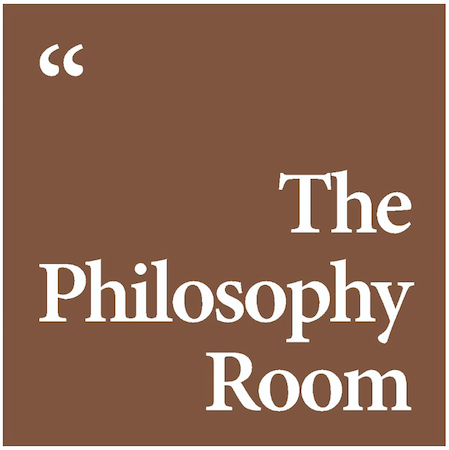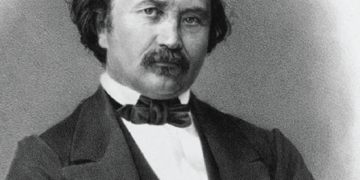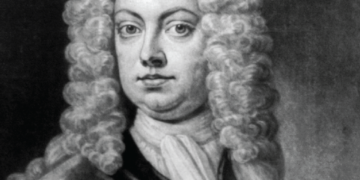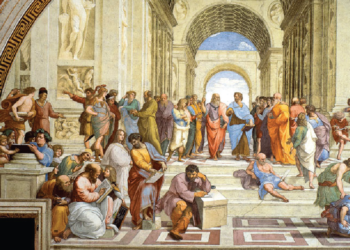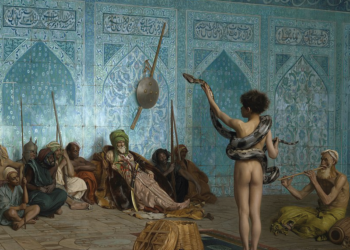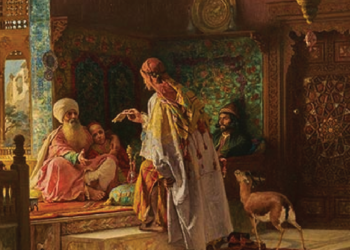Gyorgy Bessenyei
1) His Biography
György Bessenyei was born in 1747 in Hungary, during a period marked by significant cultural and political changes within the Habsburg Monarchy. His early life unfolded against the backdrop of a nation striving to awaken a sense of national identity amidst foreign domination and internal challenges. Bessenyei’s upbringing was shaped by the intellectual currents of the Enlightenment, which would later profoundly influence his work as a writer, thinker, and reformer.
From a young age, Bessenyei showed a strong intellectual curiosity and a passion for literature and philosophy. He pursued his education at the University of Nagyszombat (modern-day Trnava, Slovakia), where he studied theology, philosophy, and classical languages. His academic training equipped him with a deep grounding in the classics as well as contemporary Enlightenment thought, blending traditional scholarship with the innovative ideas that were sweeping through Europe at the time.
Bessenyei’s career was diverse and multifaceted. He began as a Lutheran pastor but soon realised that his true calling lay in cultural and intellectual activism. Throughout his life, he worked tirelessly to advance the Hungarian language, literature, and national consciousness. He was part of the early Hungarian literary revival, which sought to establish a modern literary culture rooted in national traditions yet open to European influences.
One of Bessenyei’s most significant contributions was his role as a leading figure in the Hungarian Enlightenment. He advocated for educational reform, secularisation, and the spread of rationalist ideas. His writings often challenged prevailing social norms and the entrenched power of the church, calling for reason, freedom of thought, and the modernisation of Hungarian society. These views occasionally brought him into conflict with conservative authorities, yet he remained steadfast in his mission.
Bessenyei was also known for his literary works, which combined classical forms with contemporary themes. His plays and essays addressed questions of individual freedom, morality, and national identity, reflecting the turbulent socio-political environment of eighteenth-century Hungary. Through these works, he sought to inspire a new generation of Hungarians to embrace progress and cultural renewal.
Throughout his life, Bessenyei maintained extensive correspondence with other prominent European intellectuals, situating himself within broader Enlightenment networks. His engagement with European philosophical and literary trends helped him bring fresh ideas into the Hungarian context, bridging local concerns with universal themes. This international outlook was a hallmark of his thought and work.
Despite facing opposition and periods of political repression, Bessenyei’s dedication to Hungary’s intellectual and cultural development never wavered. He died in 1811, leaving behind a rich legacy as one of the pioneers of Hungarian modernity. His efforts laid crucial groundwork for the nation’s nineteenth-century reforms and cultural blossoming.
2) Main Works
Ágis tragédiája” (The Tragedy of Ágis) (1772)
This dramatic work is one of Bessenyei’s most famous plays and a significant contribution to Hungarian literature. It is a tragedy inspired by classical models, reflecting Enlightenment themes such as reason, freedom, and moral responsibility. The play explores the conflict between individual conscience and political power, highlighting the importance of personal integrity in the face of tyranny. Through its characters and plot, Bessenyei critiques authoritarianism and advocates for enlightened governance.
A magyarokhoz (To the Hungarians) (1783)
This patriotic essay is a passionate call for Hungarian cultural and national awakening. Bessenyei urges his compatriots to embrace education, the Hungarian language, and rational thought as tools for national progress. The work embodies his commitment to fostering a sense of pride and unity among Hungarians, encouraging them to break free from foreign domination and intellectual stagnation.
Értekezés a magyar nyelvről (Treatise on the Hungarian Language)
In this important linguistic and cultural text, Bessenyei examines the state and development of the Hungarian language. He advocates for its cultivation and modernisation, seeing language as a vital vehicle for national identity and intellectual life. His work contributed to the broader movement aimed at elevating Hungarian as a language of literature, science, and education.
Felelet (Response) (1785)
This essay represents Bessenyei’s engagement in contemporary philosophical and political debates. It is a reasoned defence of Enlightenment principles, including reason, freedom, and tolerance. The work responds to conservative critics, defending the necessity of reform and the value of critical thinking in society.
Szózat (Appeal)
In this work, Bessenyei calls for moral and intellectual renewal among Hungarians. He stresses the importance of education, virtue, and public spirit as foundations for a stronger nation. The piece reflects his humanist and patriotic ideals, urging individuals to contribute actively to the betterment of society.
Versek (Poems)
Bessenyei’s poetry reflects his Enlightenment ideals and national concerns. His verses often explore themes of liberty, justice, and the human condition. Though not as widely known as his prose and dramatic works, his poetry contributed to the cultural revival of Hungary and expressed personal reflections on contemporary issues.
Translations and Adaptations
Bessenyei also worked on translating and adapting classical and contemporary European texts into Hungarian. Through this, he helped introduce European Enlightenment literature and philosophy to a Hungarian audience, supporting the development of a national literary culture informed by broader intellectual currents.
3) Main Themes
Enlightenment and Reason
Bessenyei was deeply influenced by the European Enlightenment, emphasising reason, critical thinking, and the pursuit of knowledge as the foundation for personal and societal progress. He championed education and rational inquiry as tools to overcome ignorance and superstition.
National Awakening and Patriotism
A central theme in Bessenyei’s work is the revival and strengthening of Hungarian national identity. He advocated for the cultivation of the Hungarian language, culture, and history to inspire pride and unity among his compatriots, encouraging a break from foreign domination.
Education and Cultural Reform
Bessenyei believed that comprehensive education was essential for Hungary’s development. He pushed for educational reform that promoted secular and humanist principles, aiming to create an enlightened citizenry capable of contributing to societal progress.
Freedom and Individual Conscience
Personal liberty and moral integrity were key concerns in his philosophy. Through his writings, especially his dramas, Bessenyei explored the tension between individual conscience and political authority, advocating for freedom of thought and ethical responsibility.
Critique of Authority and Tradition
Bessenyei challenged established social, political, and religious authorities when they hindered progress. He criticised dogmatism and called for reform in institutions, promoting tolerance and openness to new ideas as necessary for Hungary’s advancement.
Language and Literary Development
He saw the Hungarian language as a crucial vehicle for national renewal and intellectual development. Bessenyei’s efforts to elevate Hungarian literary standards and promote vernacular usage were part of a broader cultural awakening.
Moral and Ethical Responsibility
Bessenyei emphasised the importance of virtue and public spirit in personal and political life. He believed that the advancement of the nation depended not only on knowledge but also on the cultivation of ethical behaviour and social responsibility.
Integration of European Ideas
While strongly nationalistic, Bessenyei was also cosmopolitan in his outlook. He sought to bring European Enlightenment ideas into the Hungarian context, blending universal principles with local traditions to create a uniquely Hungarian modernity.
4) Csere as Philosopher
György Bessenyei’s philosophical outlook is deeply rooted in the Enlightenment ideals that shaped much of eighteenth-century Europe, yet it carries distinct national and cultural nuances that reflect Hungary’s particular historical circumstances. As a philosopher, Bessenyei sought to synthesise reason, morality, and national consciousness into a coherent framework that could guide both individual behaviour and societal reform. His philosophy was not abstract or purely theoretical; rather, it was closely connected to his literary and educational activities, aimed at awakening a modern Hungarian identity.
Central to Bessenyei’s philosophy was the conviction that reason and critical thought were the primary tools for overcoming ignorance and backwardness. Influenced by figures like Voltaire and Rousseau, he emphasised the power of rational inquiry to challenge superstition, dogma, and authoritarianism. He believed philosophy should be accessible and practical, serving as a guide for enlightened living rather than as an esoteric pursuit confined to academic circles.
Bessenyei was particularly concerned with the moral development of the individual. His philosophical writings often explore the relationship between reason and virtue, proposing that true freedom depends on the cultivation of ethical character. This focus on morality was linked to his view that personal integrity was essential for the health of the nation. He argued that only through virtuous citizens could Hungary achieve political and cultural renewal.
The theme of freedom recurs throughout Bessenyei’s thought, both in political and intellectual terms. He supported the idea that individuals must be free to think, speak, and act according to reason and conscience. This stance naturally brought him into conflict with the conservative political and religious establishments of his time. Nevertheless, he saw freedom as a necessary condition for progress and enlightenment, and he championed it vigorously in his writings and public life.
Another important aspect of Bessenyei’s philosophy was his national consciousness, which he intertwined with universal Enlightenment ideals. He believed that Hungary’s progress required a revival of its language, culture, and history, but this revival had to be informed by reason and universal values such as justice and liberty. His philosophy therefore combined patriotism with cosmopolitanism, seeking to place Hungary within the broader currents of European modernity without sacrificing its unique identity.
Bessenyei also engaged with the classical philosophical tradition, drawing inspiration from ancient Greek and Roman thinkers. His works reflect an appreciation for the virtues of courage, wisdom, and civic responsibility, which he saw as timeless principles necessary for both personal and national flourishing. By reinterpreting these classical ideals in the context of Enlightenment thought, he created a philosophy that was both rooted in tradition and forward-looking.
In his plays and essays, Bessenyei used philosophy as a tool to dramatise the conflict between enlightened reason and oppressive power, illustrating the struggles of individuals striving for freedom against tyrannical forces. This dramatization underscored his belief in the transformative power of ideas and the responsibility of intellectuals to lead social change.
5) His Legacy
György Bessenyei’s legacy occupies a distinguished place in Hungarian cultural and intellectual history. As a leading figure of the Hungarian Enlightenment, he is remembered not only for his literary achievements but also for his pivotal role in awakening national consciousness and promoting modern ideas in a society that was, at the time, largely conservative and fragmented. His efforts laid the intellectual groundwork for Hungary’s later cultural and political reforms, particularly in the nineteenth century, when the nation sought greater autonomy and modernisation.
One of Bessenyei’s most enduring contributions is his championing of the Hungarian language as a medium for serious literature and philosophical thought. By writing in Hungarian and advocating for its development, he helped elevate the language’s status from a vernacular tongue to a vehicle capable of expressing complex ideas and cultural identity. This linguistic advocacy significantly influenced subsequent generations of Hungarian writers and thinkers who sought to build a national literature and scholarly tradition.
Bessenyei’s work as a dramatist and essayist inspired a new cultural optimism and a critical spirit among his contemporaries. His plays, in particular, used classical forms to engage with contemporary issues such as freedom, tyranny, and moral responsibility, offering a framework for understanding the challenges facing Hungary. These works are still regarded as foundational texts in Hungarian literature and have influenced later national dramatists and intellectuals.
His commitment to Enlightenment principles—reason, education, and individual liberty—also contributed to shaping Hungary’s intellectual climate. Bessenyei’s advocacy for secular education and rational thought helped weaken the dominance of religious dogma and conservative political structures, encouraging a more open and progressive society. His ideas fed into broader European movements for reform, situating Hungary within a continental context of modernisation.
Moreover, Bessenyei’s legacy is visible in the institutions and cultural movements that followed his death. The Hungarian Reform Era, which culminated in the 1848 revolution, drew on many of the themes and aspirations that he had championed decades earlier. His vision of an educated, free, and morally responsible citizenry remained a guiding ideal for reformers and nationalists alike.
In addition, Bessenyei is honoured for his intellectual courage. At a time when dissent was often met with harsh repression, he persisted in promoting progressive ideas and critiquing authoritarianism. This moral bravery has earned him recognition as a symbol of Hungary’s struggle for enlightenment and national dignity.
Today, György Bessenyei is celebrated in Hungary through commemorations, literary studies, and inclusion in educational curricula. His influence extends beyond literature into philosophy, education, and cultural identity, making him a multifaceted figure whose work continues to resonate in modern Hungarian thought.
